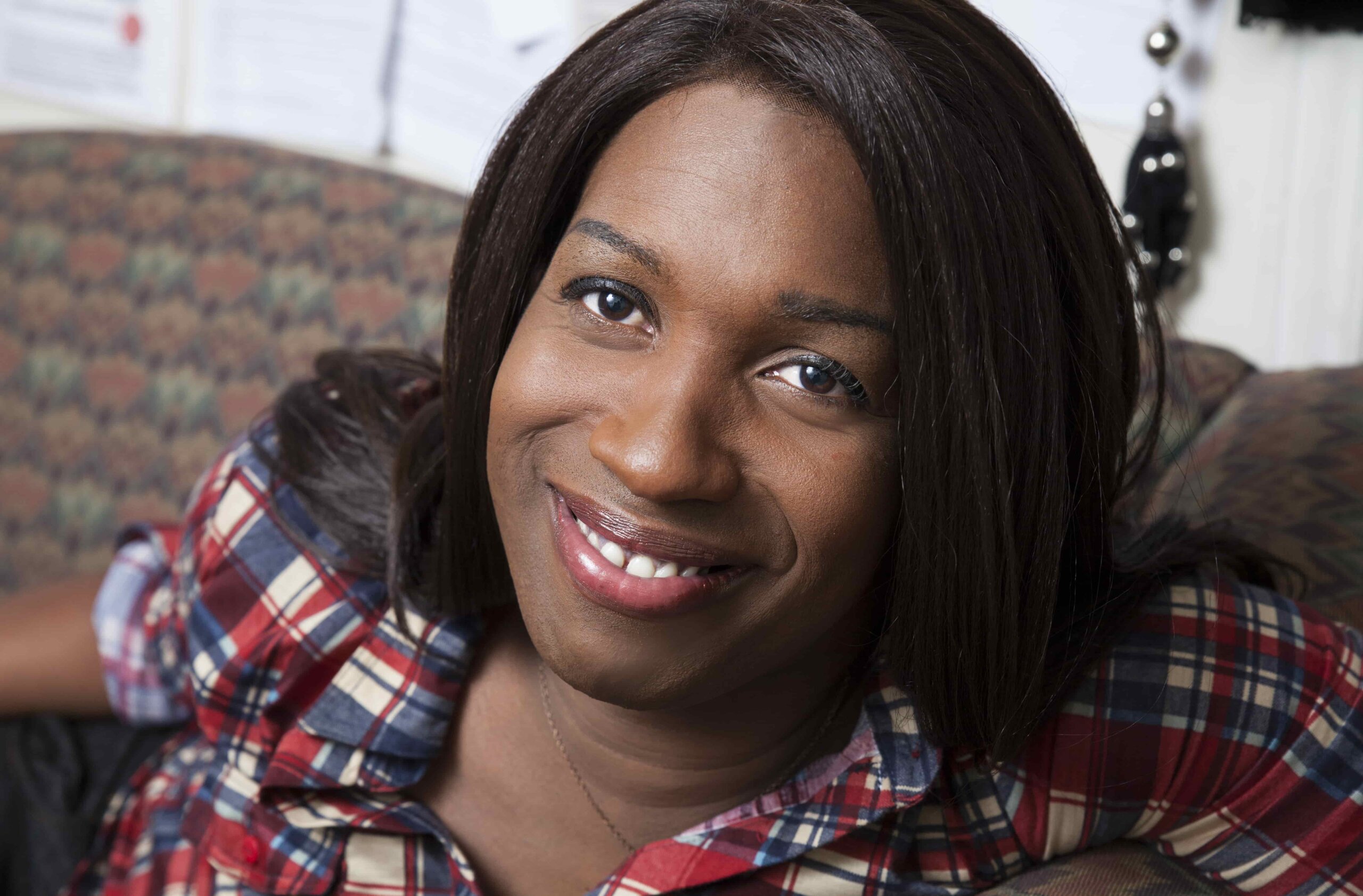After a years-long legal battle, Ashley Diamond, a trans woman currently incarcerated in a men’s prison, may be one step closer to being transferred to a women’s facility.
This week, attorneys at the Center for Constitutional Rights (CCR) and the Southern Poverty Law Center (SPLC) submitted an emergency appeal on Diamond’s behalf that could potentially force the state of Georgia to transfer her. The emergency request is a last-ditch attempt to get Diamond out of Coastal State Prison in Garden City, where she has been sexually and physically assaulted. She has attempted to take her own life on multiple occasions.
In documents submitted to the U.S. district court in Macon, Georgia, on Feb. 23, Diamond’s attorneys argue that the state is showing a “callous disregard” for their client’s health and safety. Without intervention from the court, her lawyers say that Diamond is at risk of “irreparable harm.”
“The harms to Ms. Diamond are the unspeakable horror of continued sexual abuse and assault as a woman in a men’s prison and her resulting suicidal ideation and PTSD,” they claim.
This week’s final filing completes a petition filed last year by Diamond’s lawyers on her behalf, but whether or not she is granted relief will come down to the court’s ruling—a process that could take months. “Still having to fight after all this time is exhausting by design,” Diamond says in a statement provided to Xtra by her attorneys. “They’re trying to wear me down, force me to give up.”
“Diamond’s attorneys argue that the state is showing a ‘callous disregard’ for their client’s health and safety.”
Diamond was initially detained in 2012 and charged with burglary after attempting to pawn an electric saw stolen by her boyfriend. During her first period of incarceration, she says she experienced frequent physical and sexual abuse and that the Georgia Department of Corrections (GDC) denied her hormone treatments.
After prison officials failed to stop the violence and mistreatment, Diamond filed a lawsuit against the GDC in 2015. Her case gained attention after gaining support from the Department of Justice (DOJ) within the Obama administration, leading to a 2016 settlement. Diamond was released on parole the same year, and her case prompted landmark reforms in how the Georgia prison system handles gender-affirming treatment for incarcerated people.
But freedom was short-lived. Diamond was reincarcerated in 2019 after leaving the state to seek treatment in Florida for her post-traumatic stress disorder, which constituted a violation of her parole.
Diamond subsequently sued the GDC for the second time in November 2020, alleging neglect and retaliation in the men’s prison where she has once again been detained. While she is currently allowed to access hormones thanks to her previous legal victory, Diamond’s attorneys say that her medical needs are still going unmet. Additionally, she has been denied access to women’s clothes and grooming products and has told her lawyers that she feels like a “bearded lady.”
Diamond’s treatment is not uncommon. Incarcerated trans women—particularly trans women of colour—are frequently denied medical care and subjected to high rates of harassment. Over a third of incarcerated trans women (37 percent) reported harassment from prison officials, and a similar number (35 percent) said they had been harassed by other inmates in a 2015 report from the National Center for Trans Equality (NCTE).
Trans women in prison are also often housed with male inmates or placed in solitary confinement, allegedly for their own protection.
In response to Diamond’s request for injunction, the state of Georgia has staunchly refuted her claims. “To call it victim blaming would be putting it mildly,” Chinyere Ezie, Diamond’s lawyer and a senior staff attorney with CCR, tells Xtra.
According to Ezie, the state is demanding documentation of Diamond’s physical injuries to back up her accounts of assault and justify her transfer to a gender congruent facility. The state’s filings refer to Diamond’s testimony as “not credible” and state that the risk of harm is not significant enough to merit an emergency transfer. (Xtra reached out to the GDC for comment but did not receive a response at the time of publication.)
“We see that as evidence of deliberate indifference,” Ezie says. “The fact that unless—or until—there’s a court order, they have no interest, no willingness to take action and take steps to protect our client.”
Additionally, Diamond’s lawyers say the state is putting forth a narrative that Diamond’s disciplinary record disqualifies her from a transfer. The GDC claims Diamond has violated prison safety rules on multiple occasions; Diamond’s attorneys say that does not eliminate the department’s obligation to protect her, regardless of whether she committed the infractions or not.
The GDC has previously come under fire for the way it treats its incarcerated population. The Biden administration’s DOJ announced last September that it was opening an investigation into whether the GDC was providing adequate protections to LGBTQ2S+ incarcerated people. The investigation, which appears to be ongoing at this time, will determine whether queer and trans resources have access to resources to prevent sexual abuse and violence behind bars.
Diamond, meanwhile, says she will continue fighting for her safety and the safety of all LGBTQ2S+ people in prison. Despite the fact that she may remain in a men’s prison for months or years, she says she can’t give up because lives are at stake. “This was never about me alone,” she says. “I’m fighting on behalf of my community, so that in the future incarcerated transgender people won’t have to suffer like I have.”


 Why you can trust Xtra
Why you can trust Xtra


